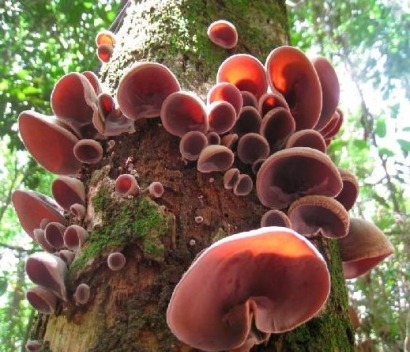
The new energy conversion concept was chosen as the cover story of ChemSusChem, a journal for chemistry, sustainability, energy, and materials.
The research was supported by scientists from a research group led by Dr. Sven Kerzenmacher at Prof. Dr. Roland Zengerle’s Laboratory for MEMS Applications.
Biofuel cells produce electricity that is environmentally friendly and conserves resources, for instance from organic waste material.
They can use enzymes as catalysts to enable electrochemical reactions that generate electricity. In contrast to precious metal catalysts in conventional fuel cells, these enzymes can be obtained at low cost from renewable raw materials. For many technical applications, however, their lifetime is too short.
The new concept developed by the Freiburg scientists solves this problem by ensuring that the fuel cell is continually resupplied with the biocatalyst.
The supplier of the fuel cell is Trametes versicolor, a tree fungus that is also found in temperate climates: It releases the fungal enzyme laccase into a solution surrounding the cathode – the positive pole of the cell – where it enables the electrochemical conversion of oxygen. Experiments conducted by the researchers demonstrate that this method can be used to extend the lifetime of the cathodes to as much as 120 days, and even considerably longer lifetimes seem possible.
By comparison, the cathodes only have a lifetime of 14 days if they are not supplied with more of the enzymes. Since the enzymatic solution can be supplied directly to the fuel cell without time-consuming and expensive purification, the costs are reduced to a minimum.
Potential applications for the concept include microbial fuel cells that generate electricity from wastewater, a technology Kerzenmacher’s research group is also developing.
For additional information:

